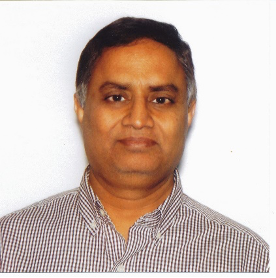Clarkson University
Department of Chemical and Biomolecular Engineering Seminar
Filtration of Protein and Biocolloidal Suspensions in Fibrous Depth Filters
Prof. Bandaru V. Ramarao
SUNY College of Environmental Science and Forestry (Syracuse, NY)
Wednesday, April 23, 2025
2:30 PM
CAMP 194
ABSTRACT
Biopharmaceutical process intensification efforts have significantly improved upstream productivity. Consequently, this has also raised bio-colloidal impurity concentrations, turning downstream purification into a process bottleneck. In response, researchers seek to enhance depth filtration performance by selecting media and operating conditions that significantly reduce the bio-colloidal impurity levels reaching the chromatography columns. Our objective is to provide insight into the mechanisms affecting bio-colloidal retention in depth filters, using principles from Colloid Filtration Theory. Filter capacity and maximum pressure drop are strongly affected by the rate at which particles transfer from the flowing suspension to the fiber surface.
Our studies are in three different areas. First, we use phenomenological models for adsorption equilibrium and kinetics to microscopic deposition mechanisms through single fiber efficiency correlations. This approach incorporates the sensitivity of depth filter capacity to the critical interplay between processing conditions such as filter porosity, fluid velocity, and protein size. Expressions using hydrodynamic cell models approximate flow through the filter. Since depth filters are typically fixed beds of cellulose fibers, inorganic additives, and polymeric binders, alternative cell models should be employed to depict the flow through the composite media. Breakthrough simulations demonstrated how depth filter composition influenced the bed utilization ratio. These models can assist in preliminary screening investigations during process development by predicting whether the selected input conditions would lead to breakthrough that fell within the acceptable process space.
A second direction of such investigations draws from studies of fibrous structures using X Ray Microtomography (XRMT) to interrogate the pore and fibrous solid spaces. Porous structures are imaged at resolutions on the micrometer to sub-micrometer (700 nm) scales and three-dimensional renderings allow study of convective diffusive as well as particle transport processes within the media. Studies of heterogeneities and their scales of variation can inform a deeper understanding of filter performance.
Lastly, simulations of the three-dimensional structures using discrete element methods are used to construct representational structures to enable studies of their performance as well as optimization of the media for different applications. By addressing how colloidal hydrodynamics influence protein retention in porous media, this research provides a streamlined approach to predicting how particle, media, and operating conditions contribute to bio-colloidal retention inside packed beds.
BIO

Prof. Bandaru V Ramarao (Ram) is a professor and chair of the Department of Chemical Engineering at the State University of New York College of Environmental Science and Forestry in Syracuse New York. He led the establishment of the chemical engineering program and renaming of the department at ESF. Prof. Ramarao has been at SUNY for more than 30 years where he has been involved with research in the applications of transport processes in fibrous media, separations processes, mathematical analysis and modeling of porous media structure and property relationships. He was an editor of the Elsevier Journal Separation and Purification Technology and co-edited a book titled ‘Separation Technologies in Biorefineries’.
He is a co-author of the monograph, Granular Filtration of Aerosols and Hydrosols with Chi Tien. He has co-authored more than 90 journal publications and has chaired several conferences and meetings. Among them, are the International Conference on Biomass Conversion Technologies (2014), Nanjing China, Progress in Paper Physics Seminar and chaired several sessions at national and international meetings.
Prof. Ramarao’s current research is focused on studies of separation operations, development of novel separation and adsorption media using stimuli responsive polymers and the conversion of waste fibers from industrial and municipal waste into biodegradable bioplastics and other bioproducts. Bioplastics are environmentally friendly and sustainable solution to the plastics pollution crisis.
Prof. Ramarao is an elected Fellow of the American Institute of Chemical Engineers and a winner of the AIChE’s Andrew Chase Award from the Forest Bioproducts Division.